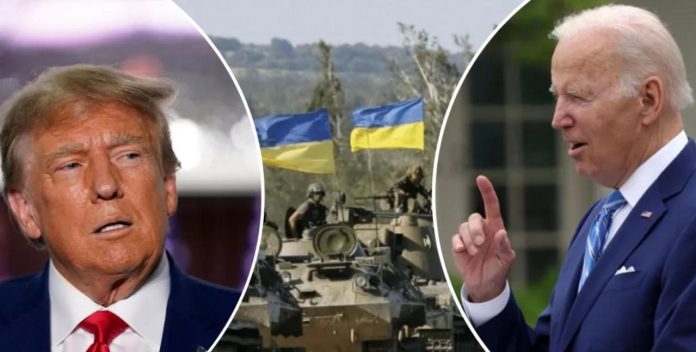Обрання Дональда Трампа на посаду президента США викликає в Україні неоднозначні очікування, що ґрунтуються на його рішучій риториці щодо завершення війни. Думки серед українців розділилися: частина суспільства побоюється, що Трамп може запропонувати мирні умови, які будуть вигідніші Росії, тоді як інші вбачають в ньому лідера, здатного швидко зупинити конфлікт. Хоча для багатьох пересічних українців цей політичний зсув в США не став шоком, військові та дипломатичні кола сприймають його з великою увагою, оскільки США мають вирішальний вплив на підтримку України.
Трамп неодноразово заявляв про своє бажання закінчити війну протягом 24 годин, мотивуючи це прагненням бути миротворцем і можливо навіть претендентом на Нобелівську премію миру. Зважаючи на його виступи, є підстави вважати, що Трамп планує якнайшвидше розпочати переговорний процес. Прогнозують, що він запропонує припинення вогню по лінії фронту, створення демілітаризованих зон, а також вимагатиме гарантій, що Україна не приєднається до НАТО. Однак такий підхід, швидше за все, викличе запеклий спротив в Україні, де національна безпека та збереження суверенітету стоять на першому місці.
Реакція Росії на обрання Трампа наразі стримана, але, ймовірно, Кремль вимагатиме для себе значних поступок, що включатимуть контроль над територіями на сході України. Це створює виклик для Трампа, адже, погоджуючись на умови Росії, він ризикує здатися слабким не лише в очах США, але й у міжнародному співтоваристві. Це стане суттєвою загрозою для іміджу США як лідера на міжнародній арені, зокрема в контексті геополітичних протистоянь у Тайванській протоці та на Близькому Сході.
Спроба Трампа просунути переговори може призвести до дипломатичного глухого кута, після чого він, ймовірно, збільшить тиск на Росію, погрожуючи збільшенням військової підтримки Україні. Однак його підтримка буде радше обмеженою і тактичною. Скоріш за все, фінансова допомога Україні з боку США стане кредитною (у форматі ленд-лізу) і може втратити безоплатний характер. Це дозволить Трампу контролювати Україну як важіль тиску і на Росію, і на Київ.
Якщо переговори розпочнуться, вони, ймовірно, затягнуться, оскільки компроміси з ключових питань для обох сторін поки малоймовірні. Обговорення таких важливих аспектів, як статус демілітаризованих зон та механізми контролю припинення вогню, вимагатимуть часу та ретельних технічних узгоджень. Існує вірогідність залучення до процесу миротворчих сил ООН, але навіть у цьому випадку рішення Ради безпеки потребуватиме тривалих і складних домовленостей.
Отже, хоча Трамп може прискорити міжнародні політичні процеси навколо України, очікування швидкого завершення війни є малоймовірними. Швидше за все, процес мирних переговорів паралельно триватиме із воєнними діями ще як мінімум кілька місяців, а досягнення стабільної угоди залишатиметься під великим питанням. Трамп, прагнучи миротворчого іміджу, може стати каталізатором спроб мирного вирішення, але українсько-російський конфлікт, швидше за все, залишатиметься актуальним викликом на міжнародній арені протягом наступних років.


